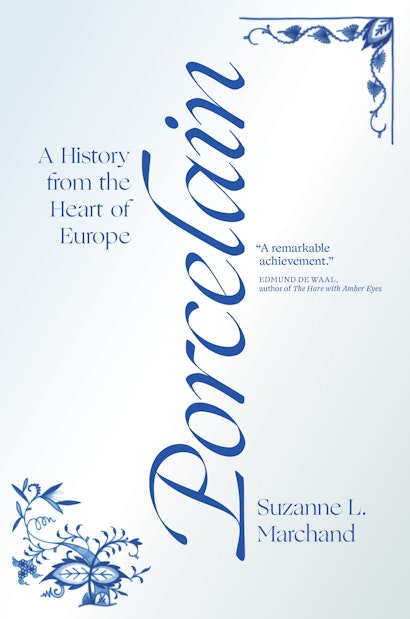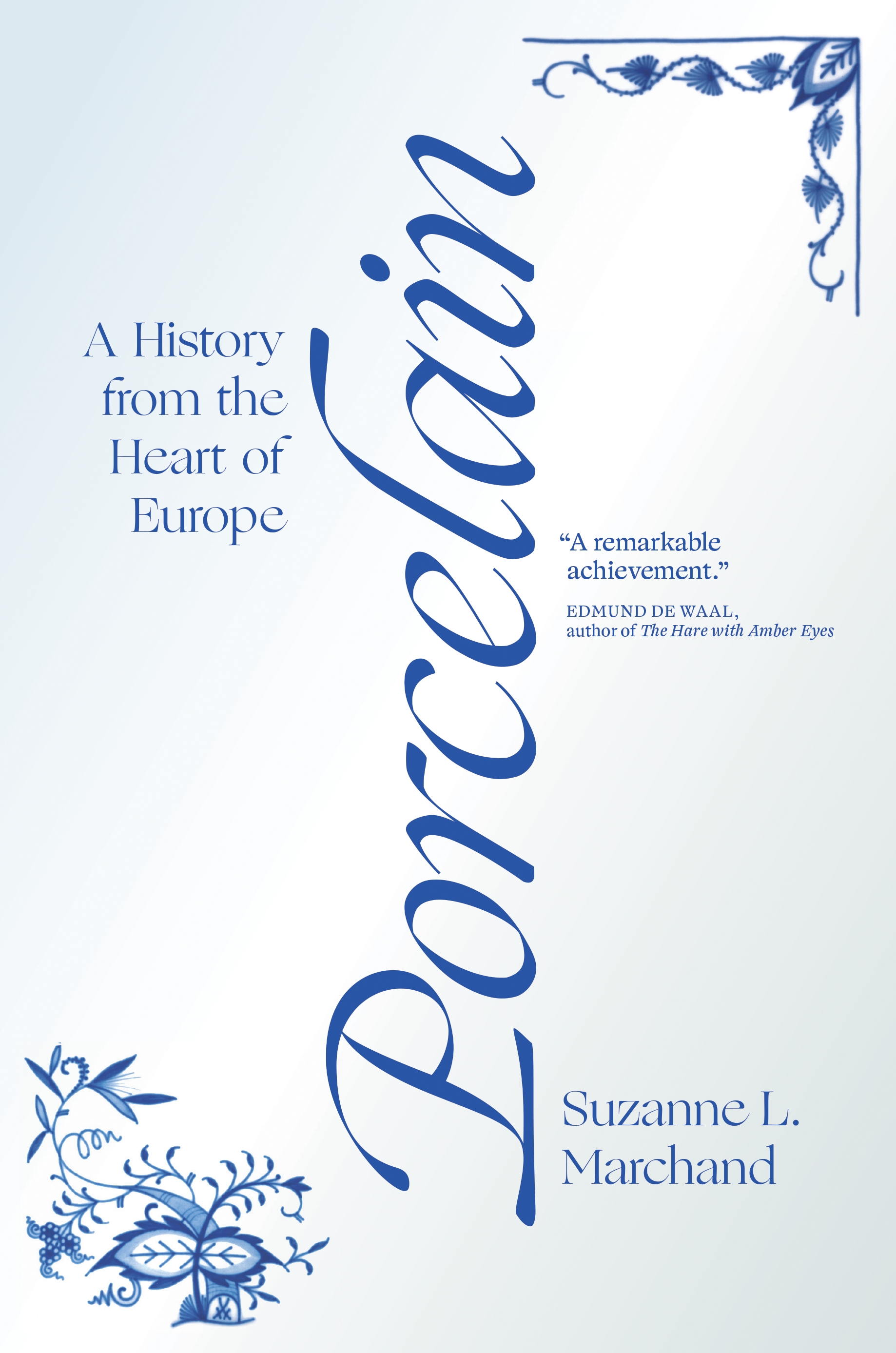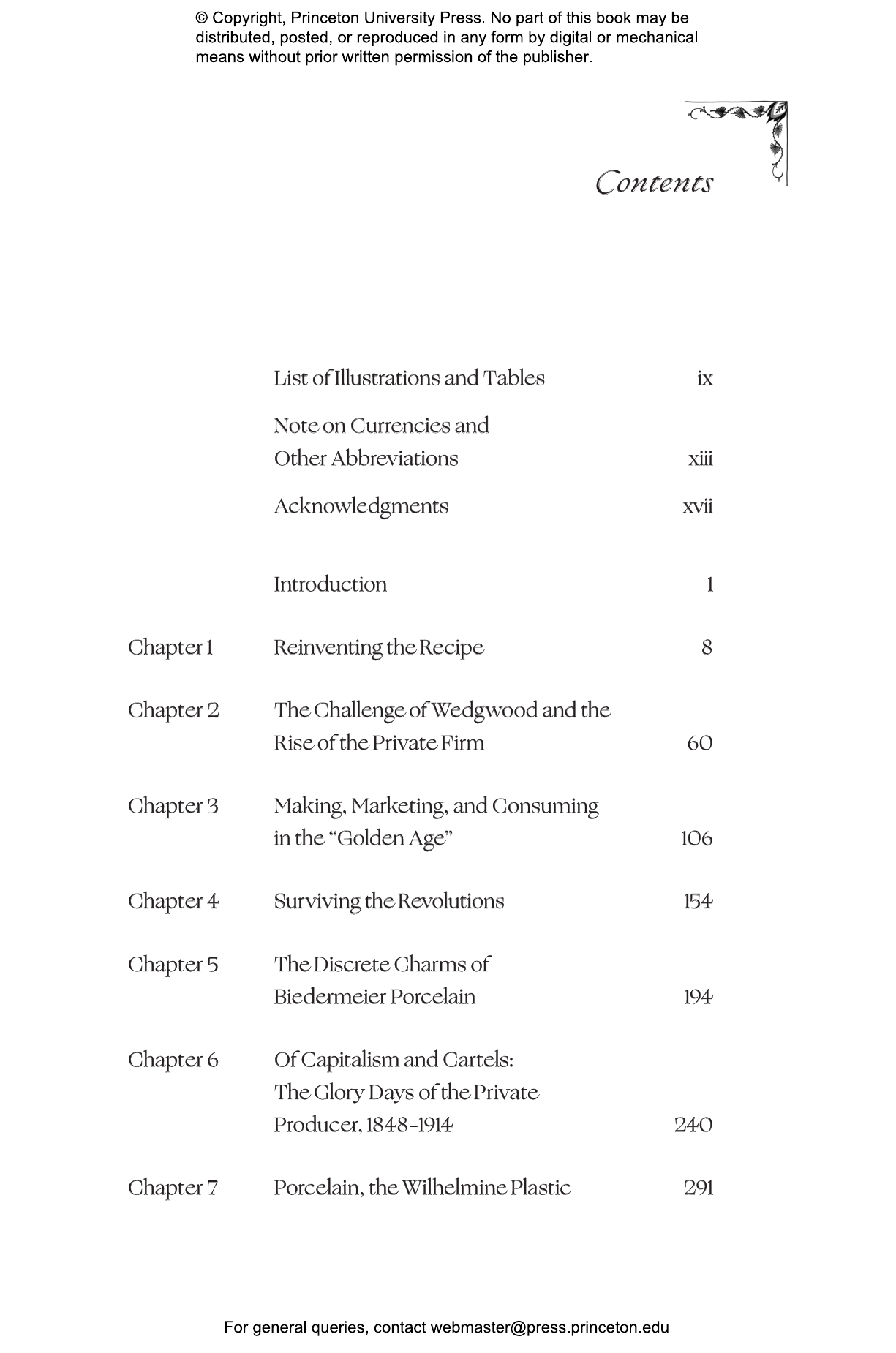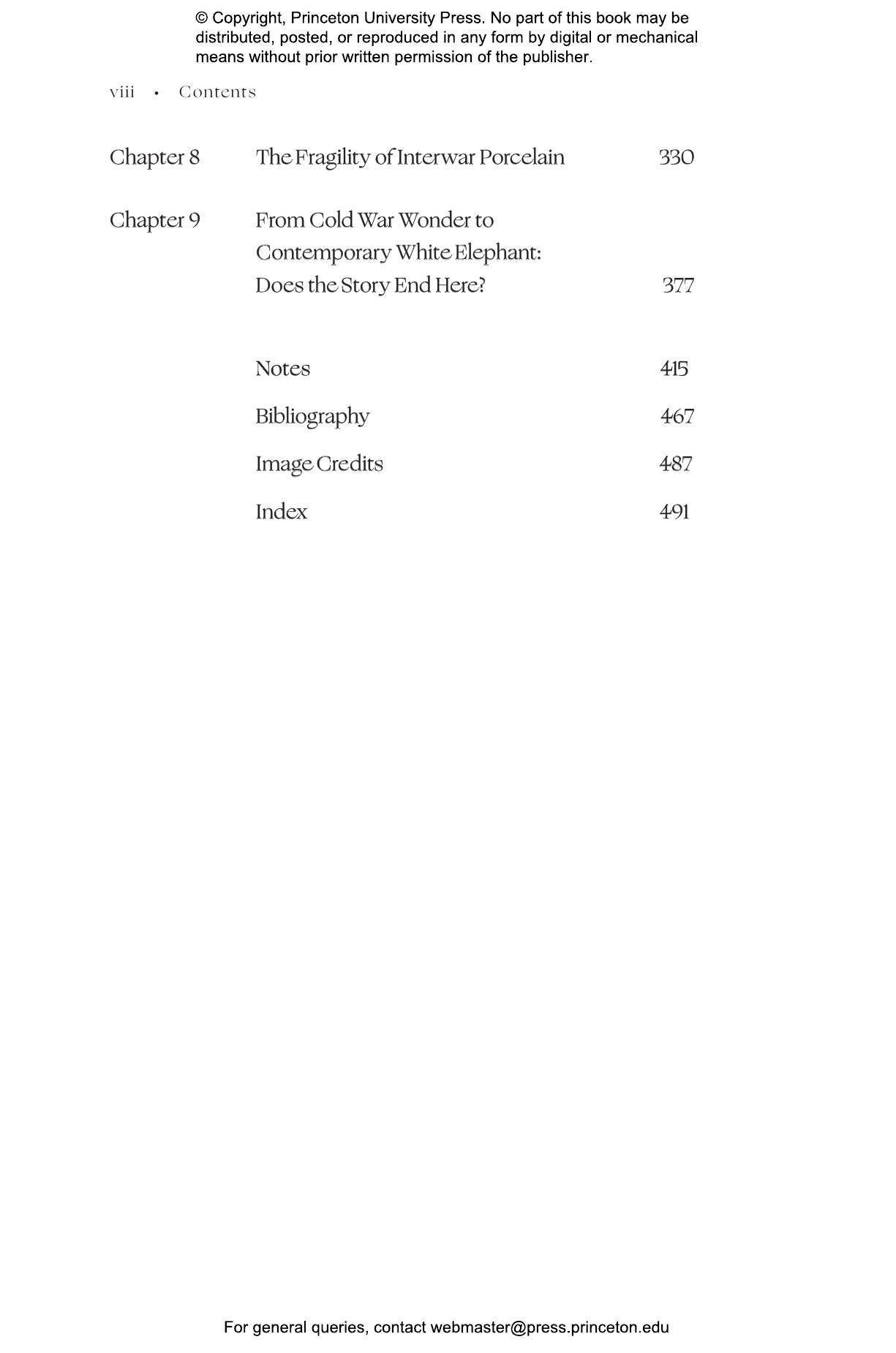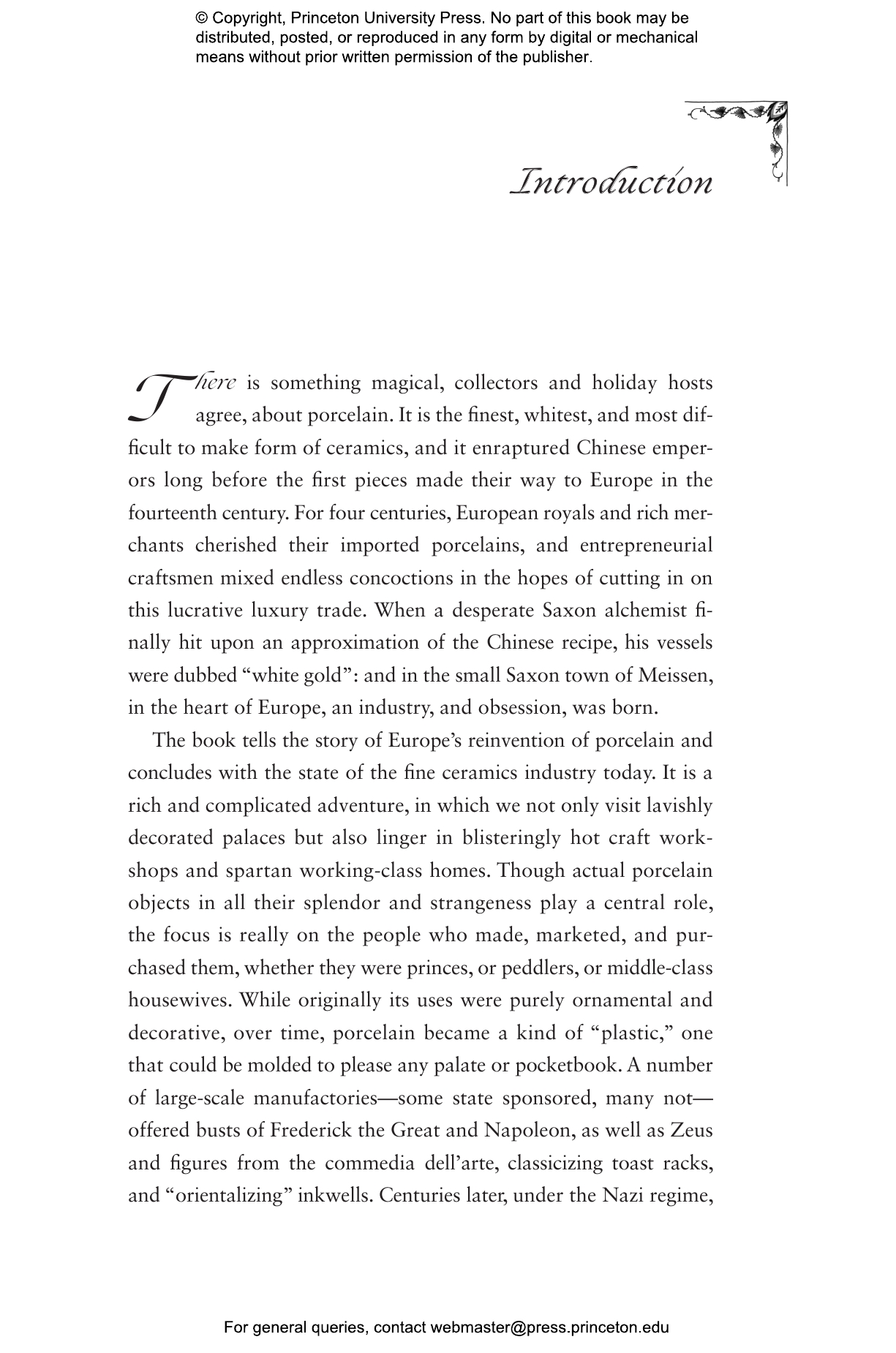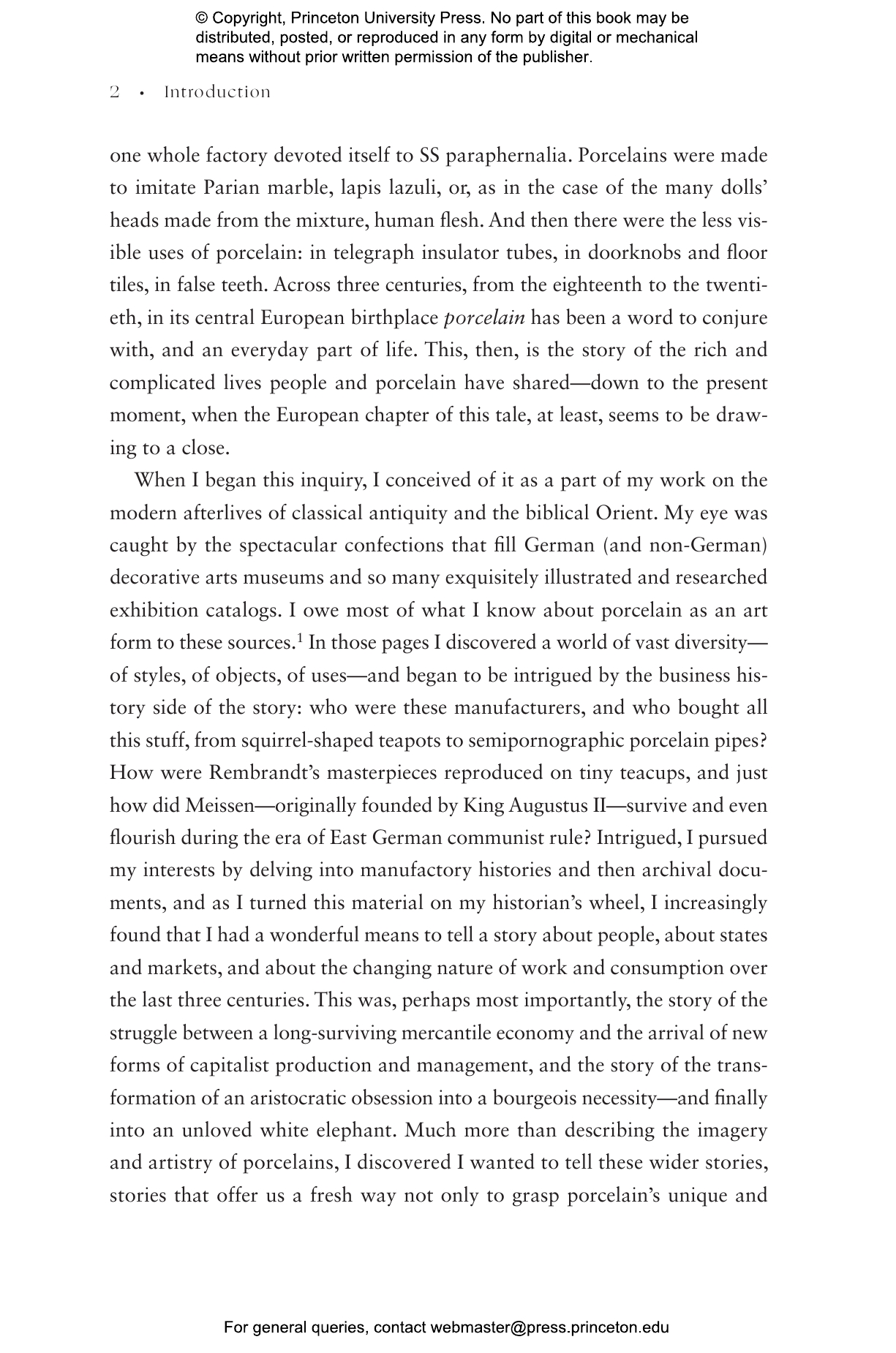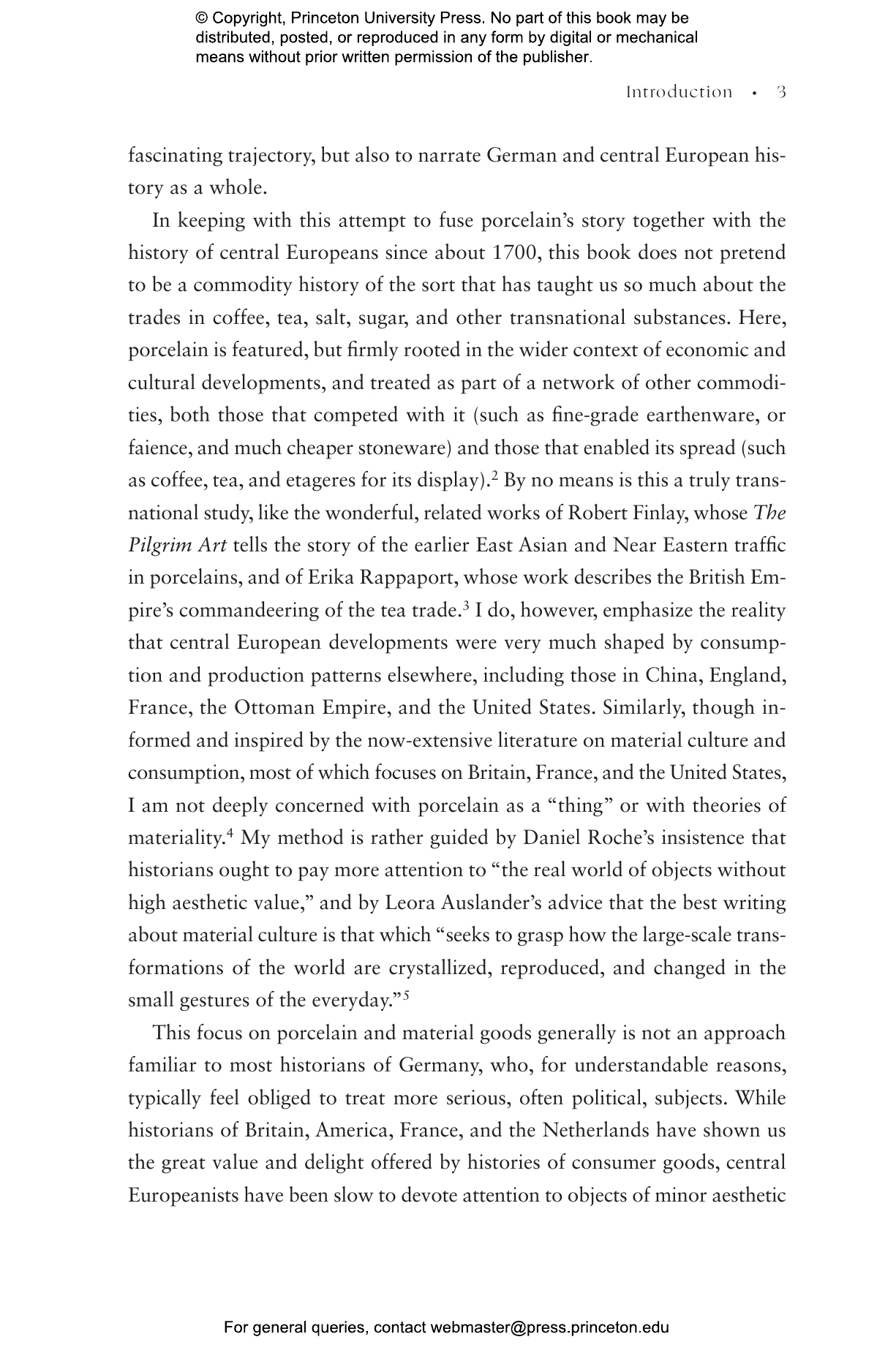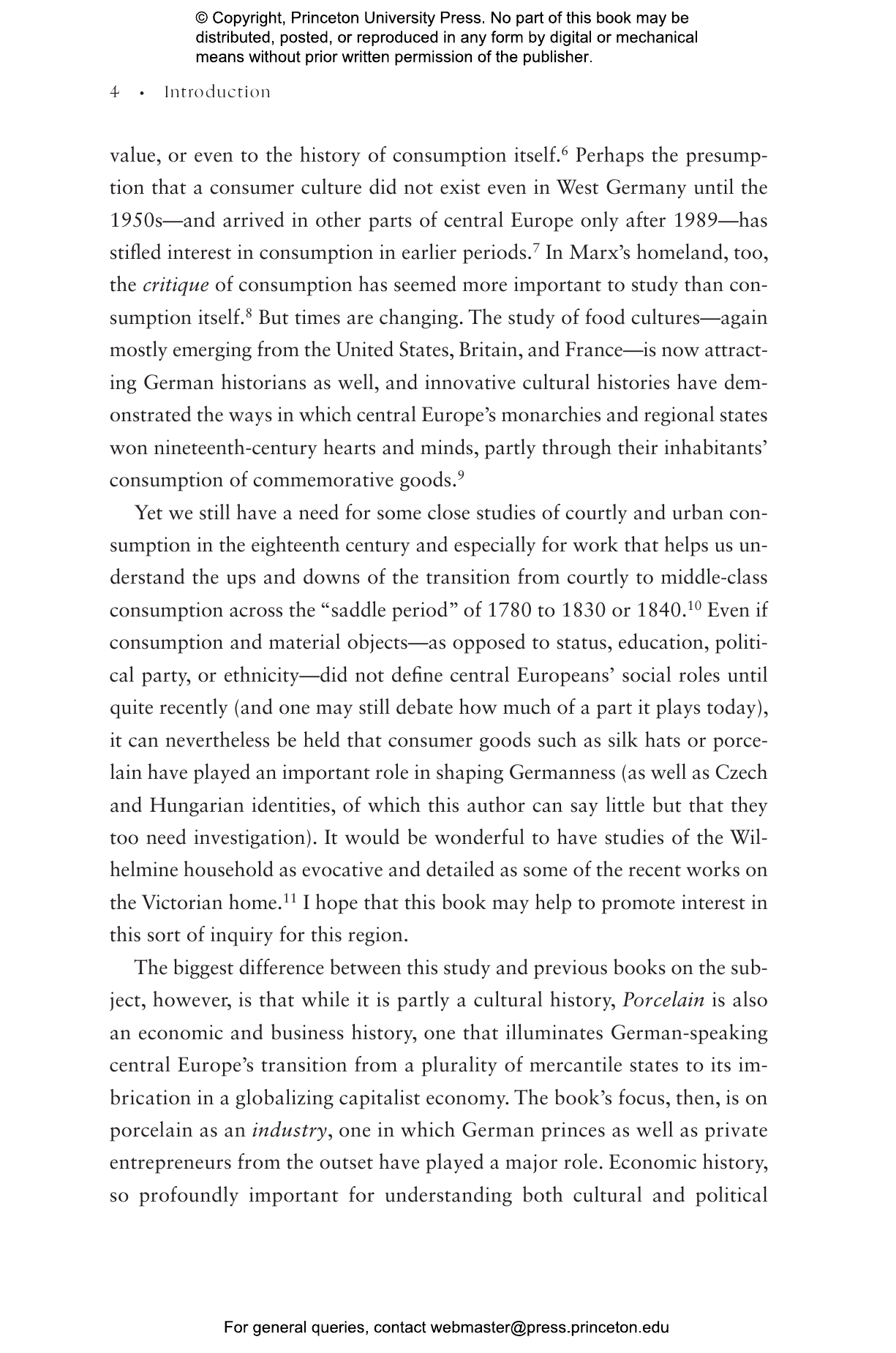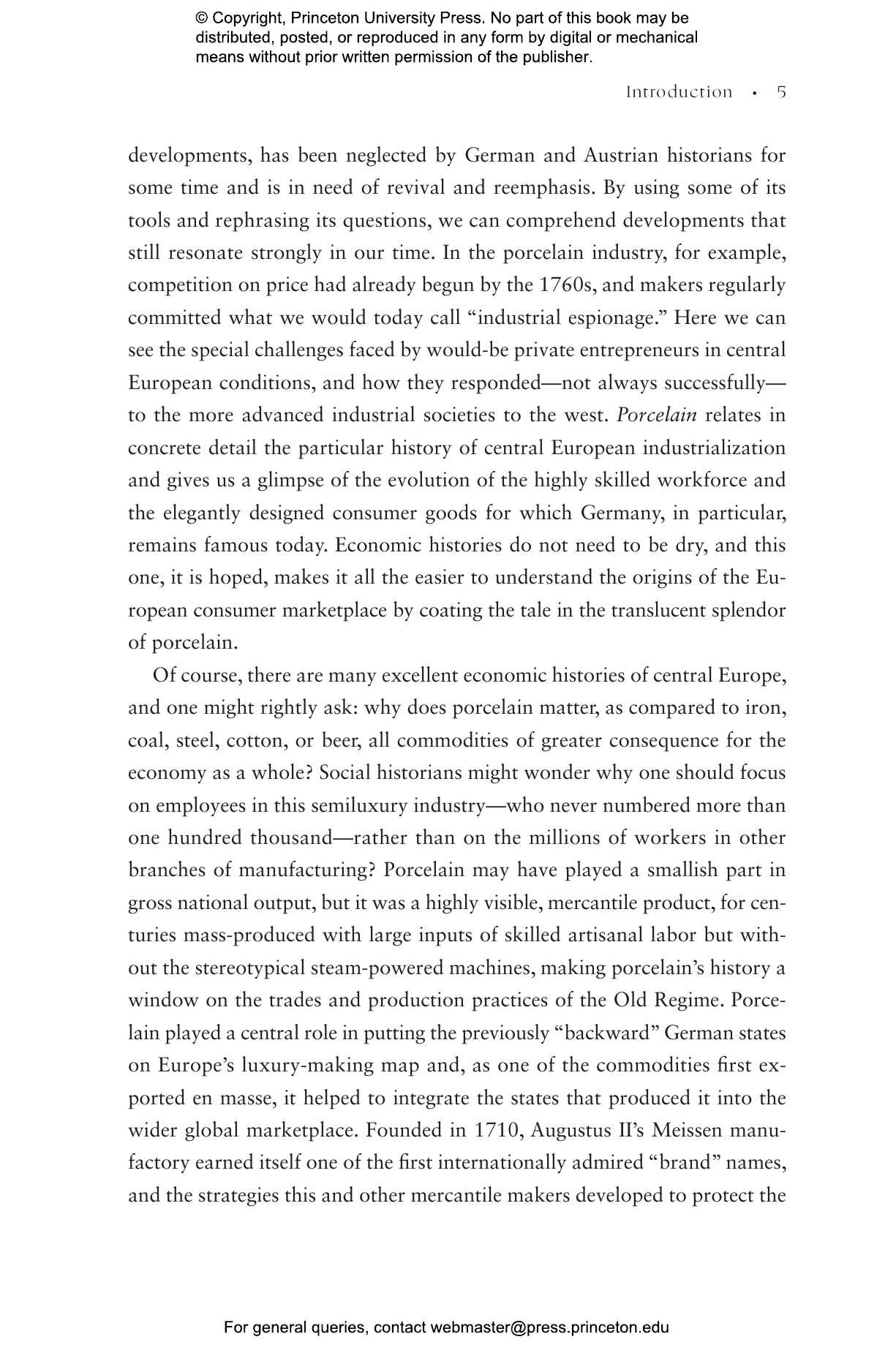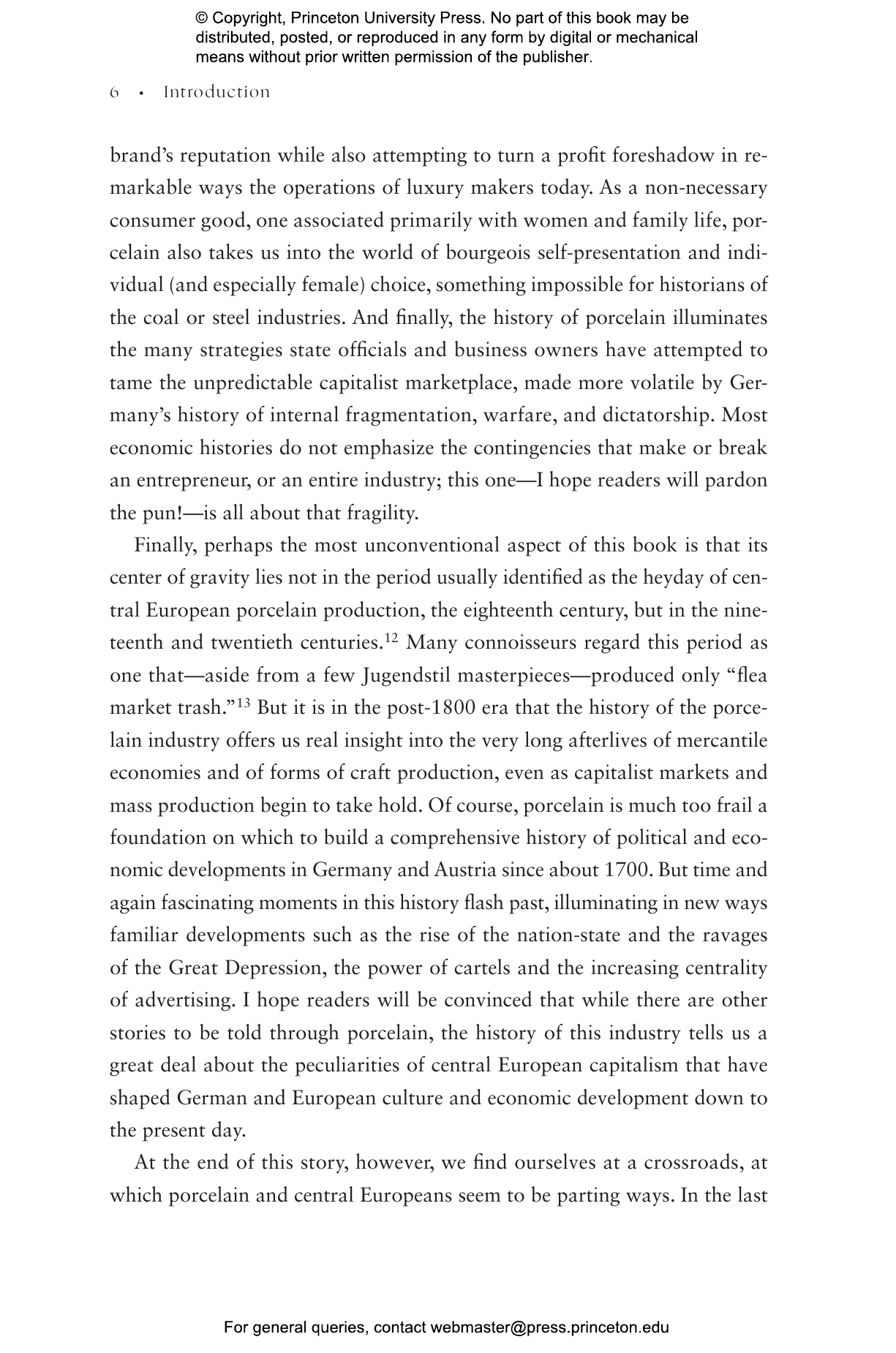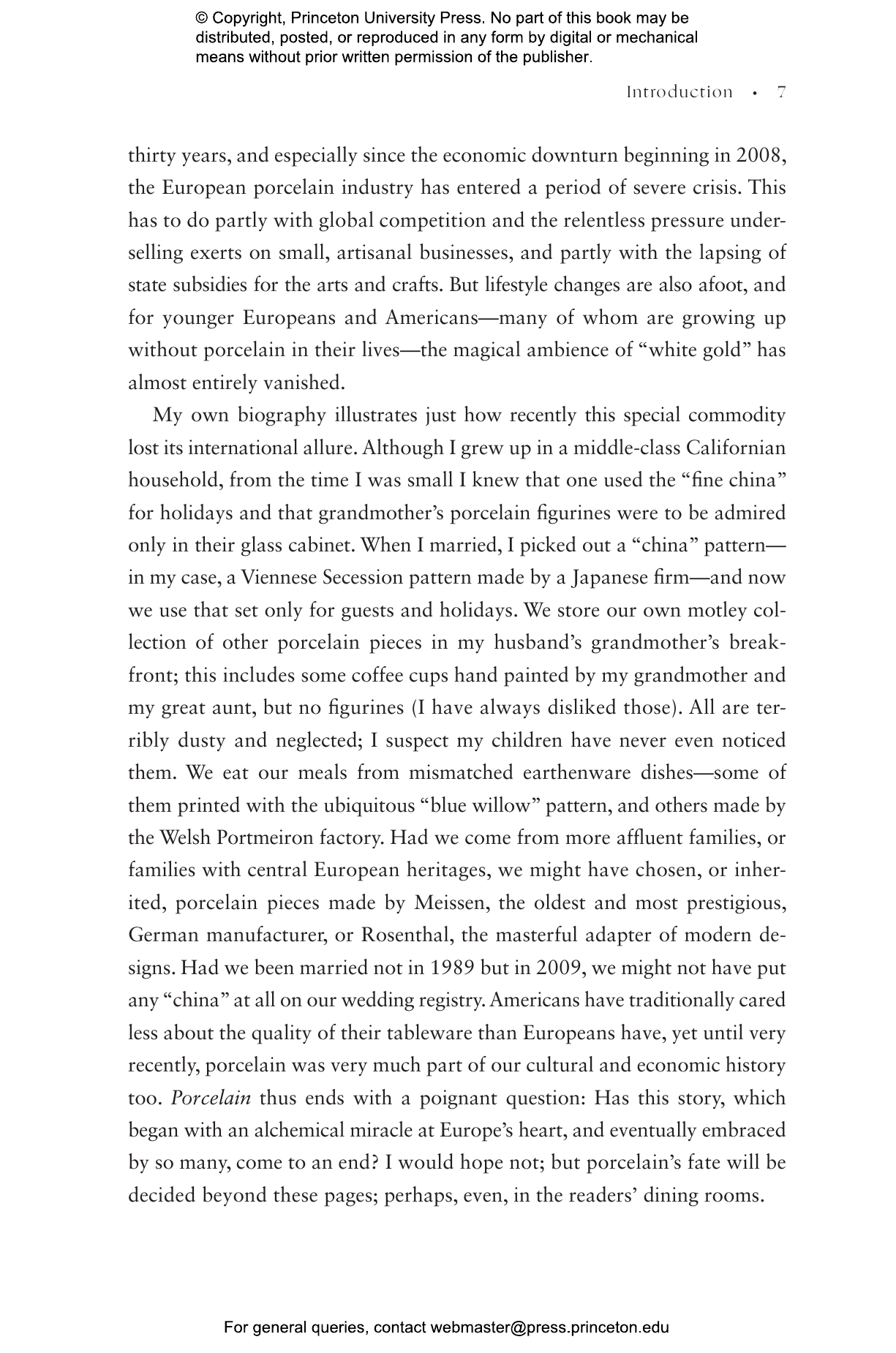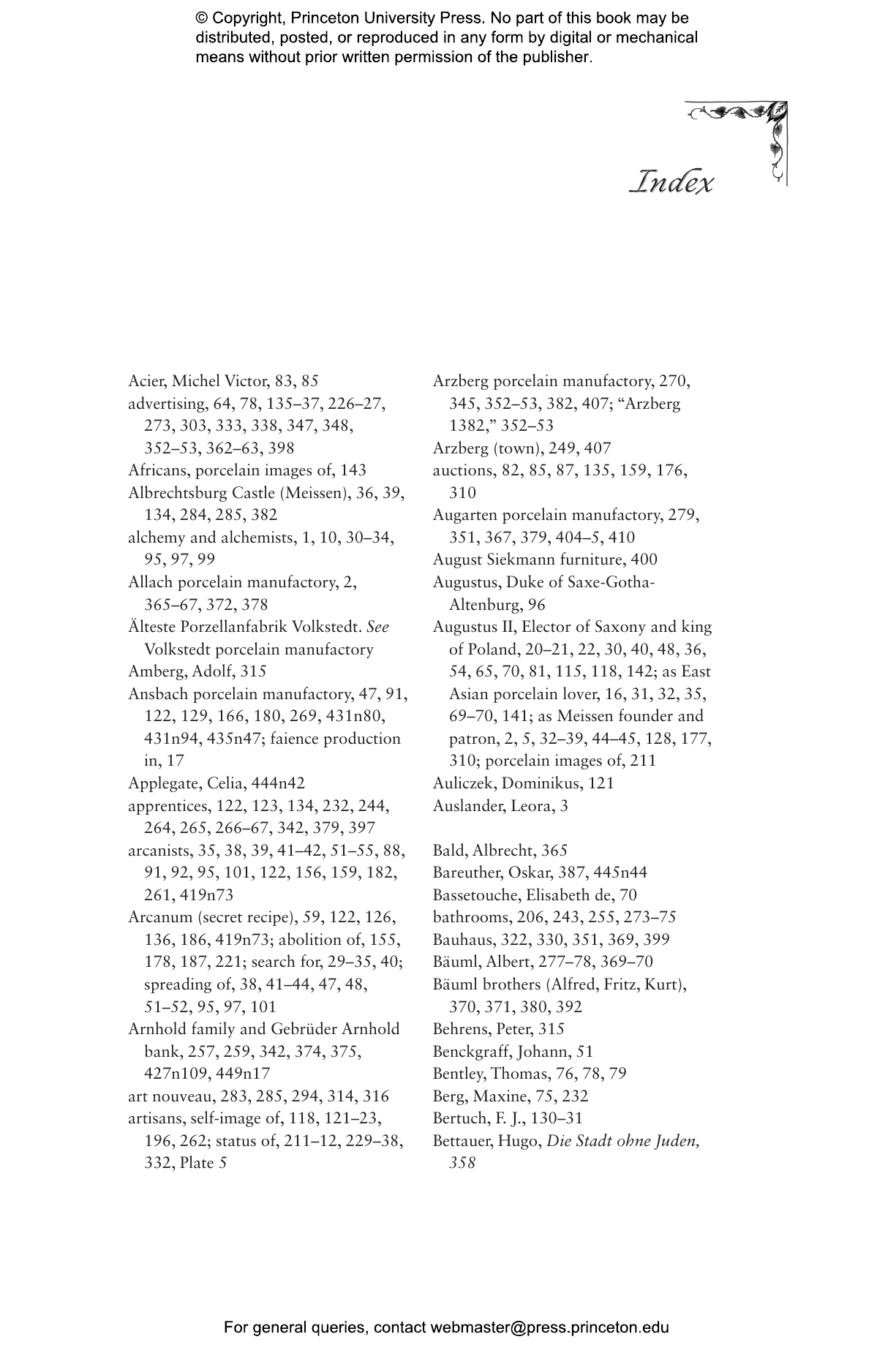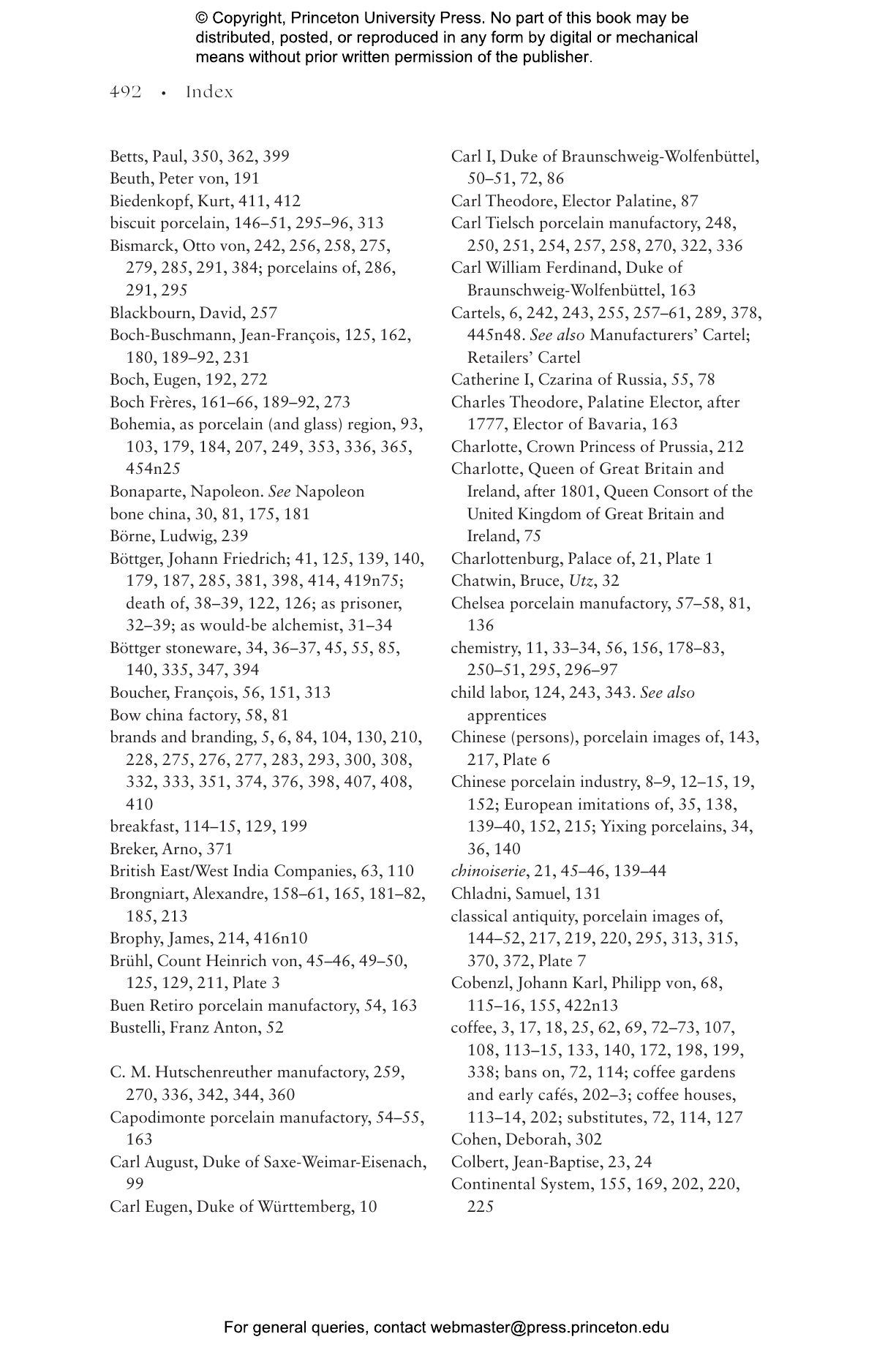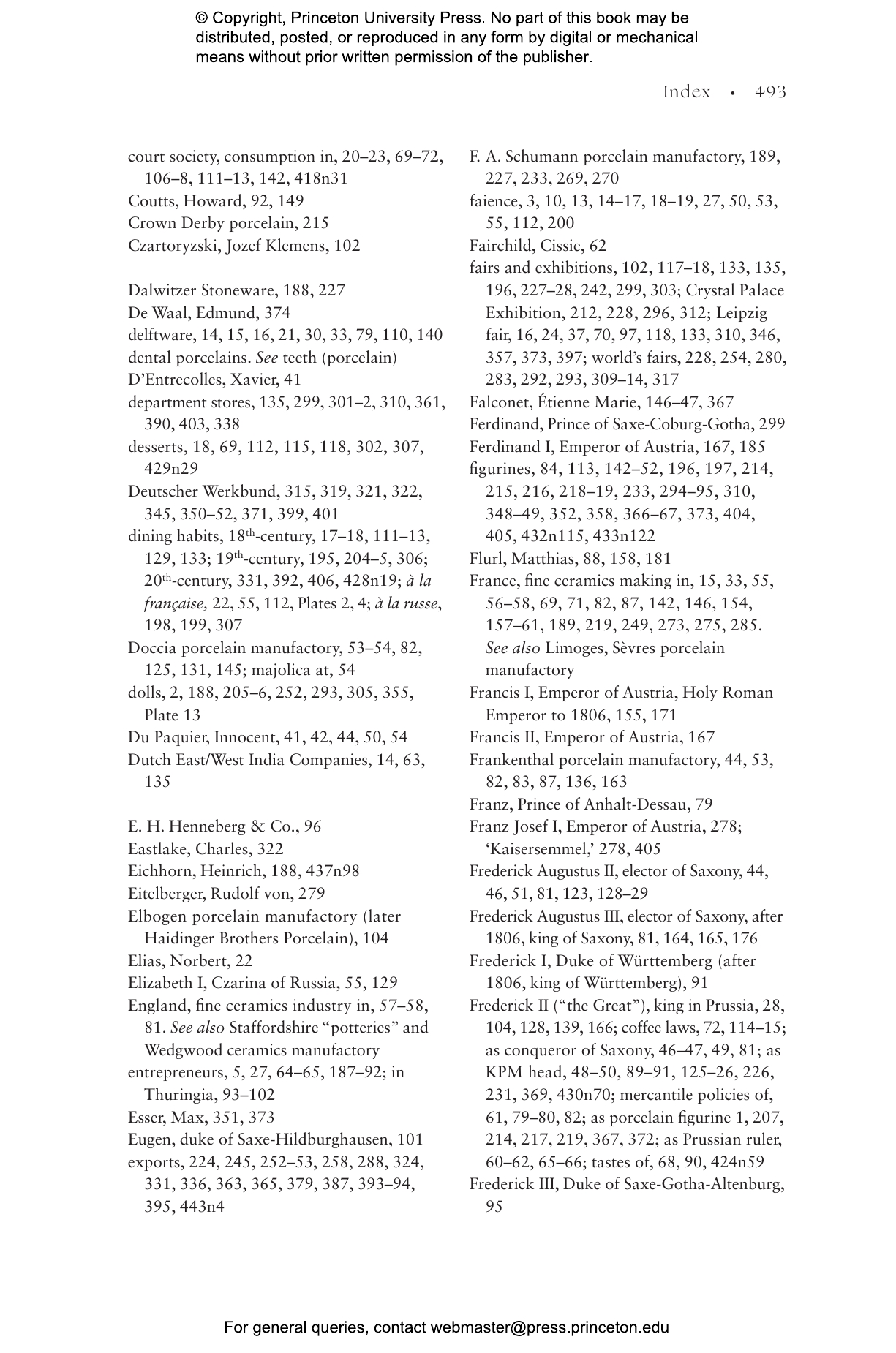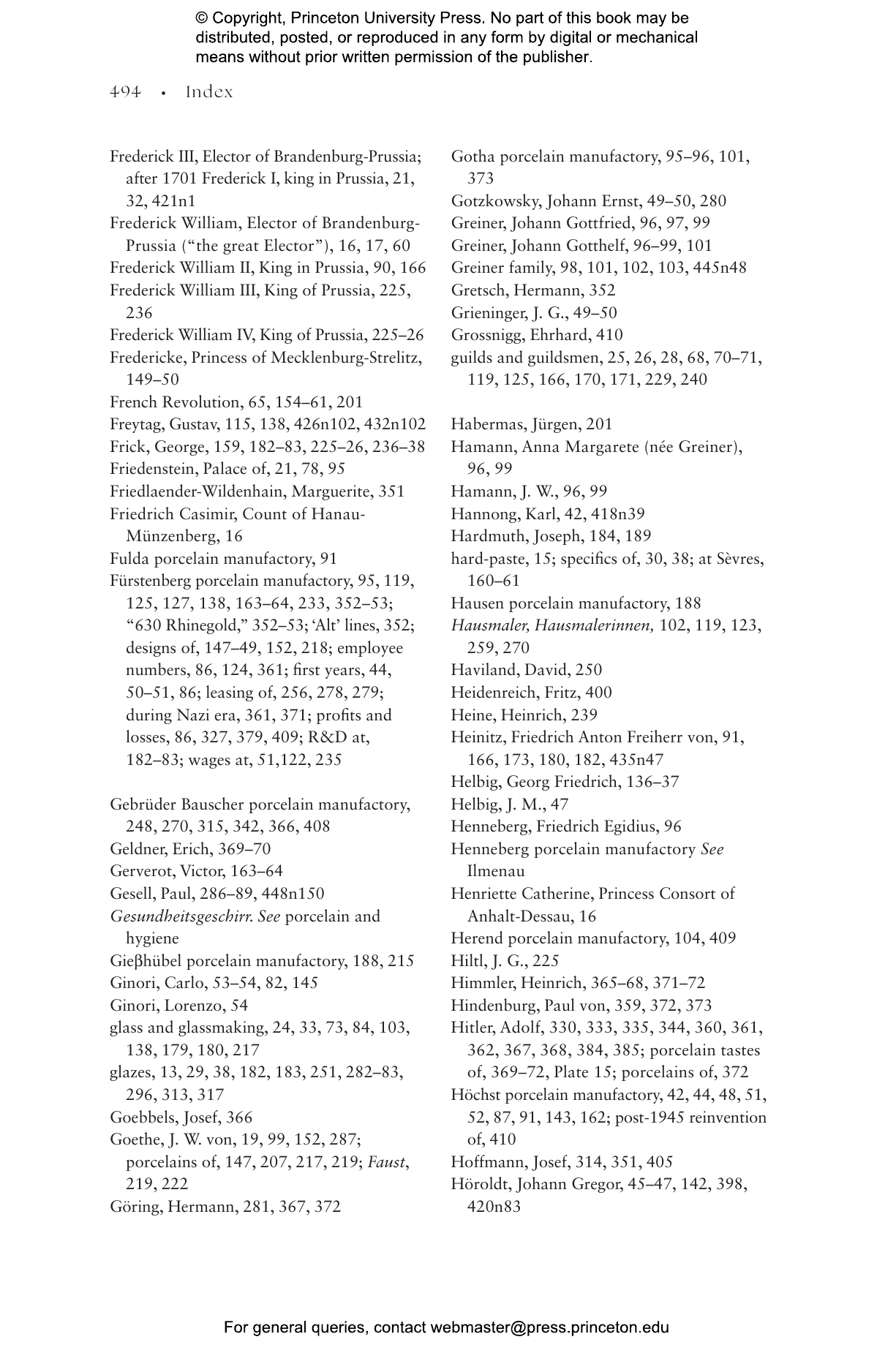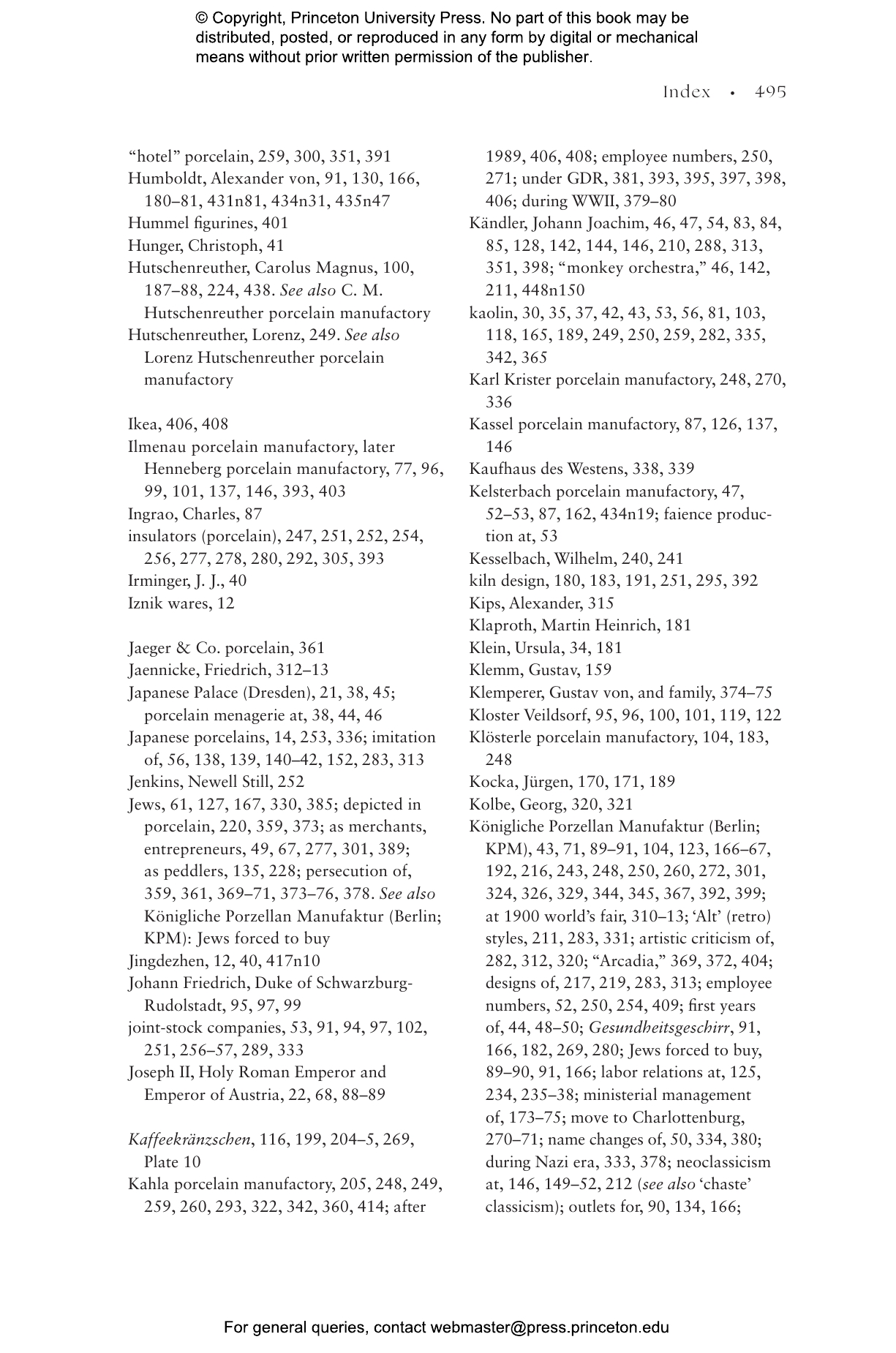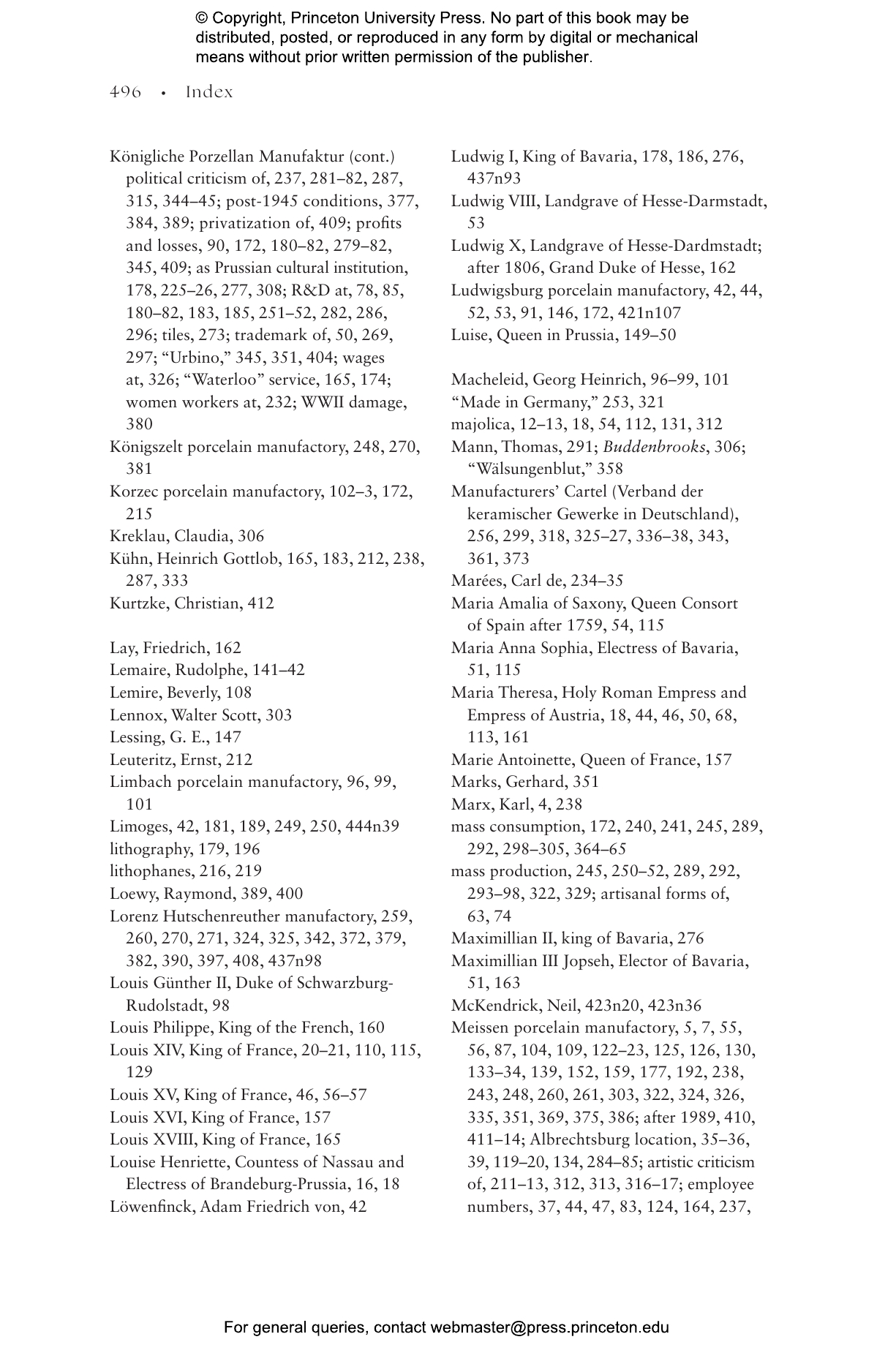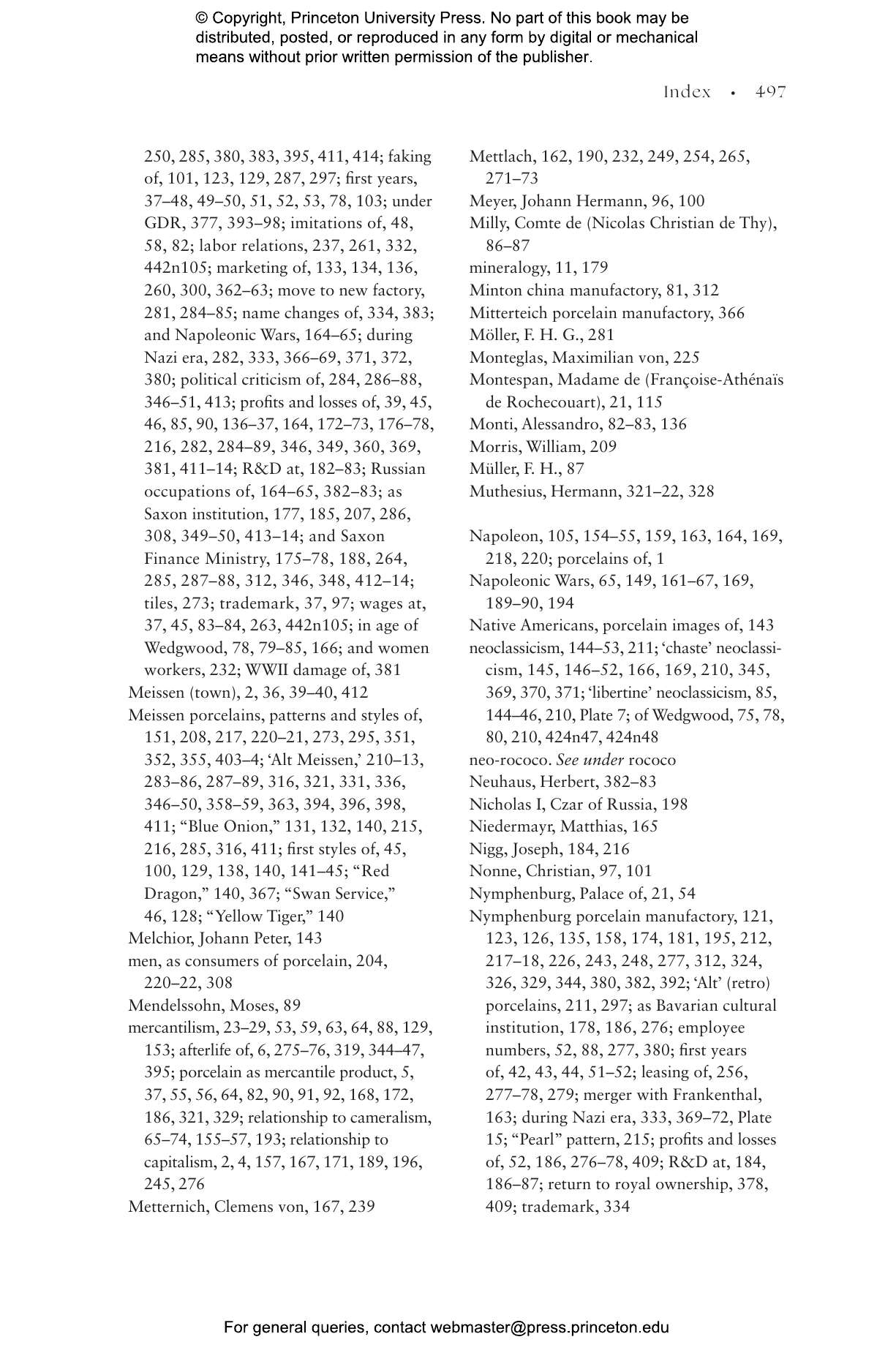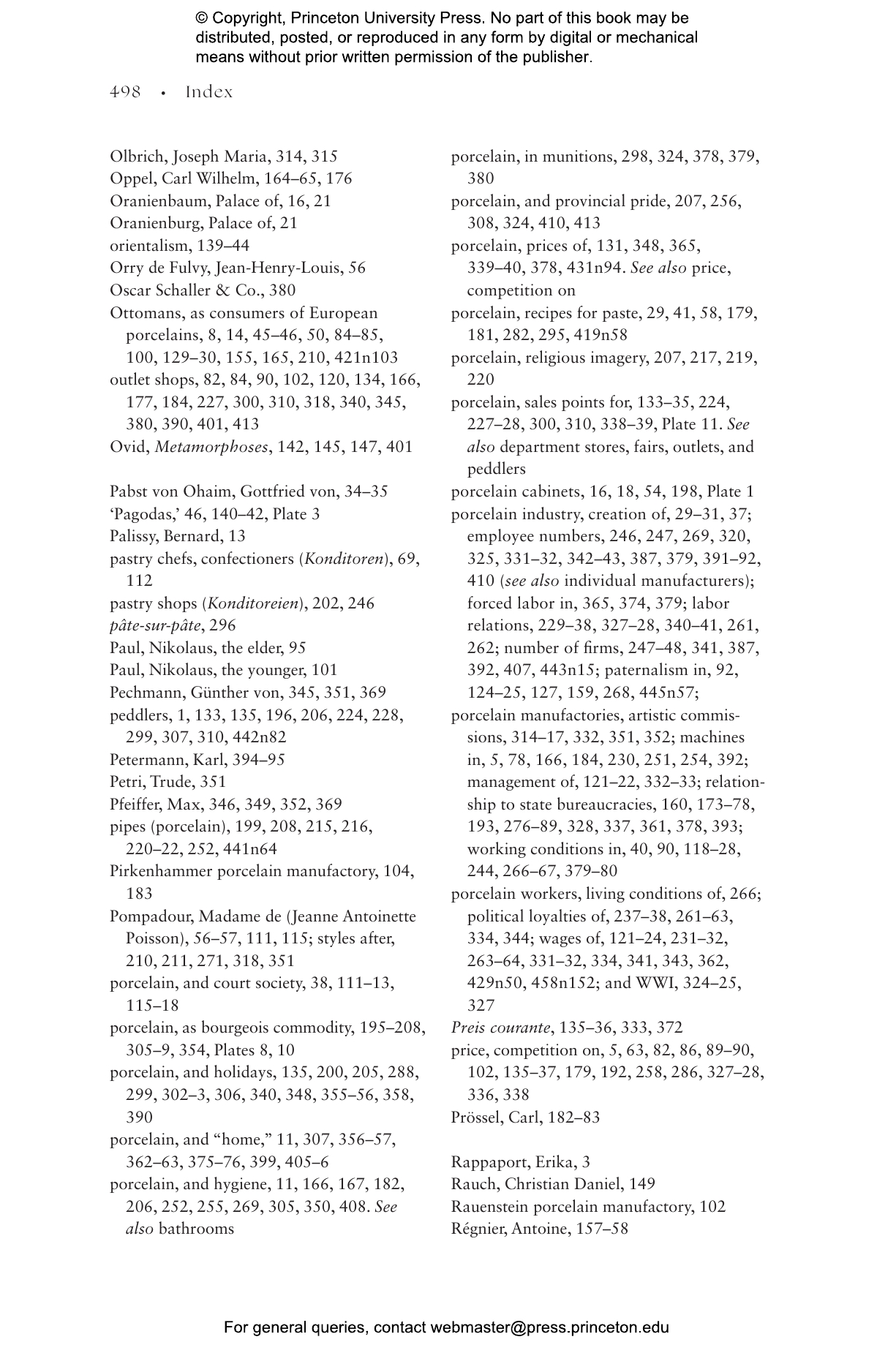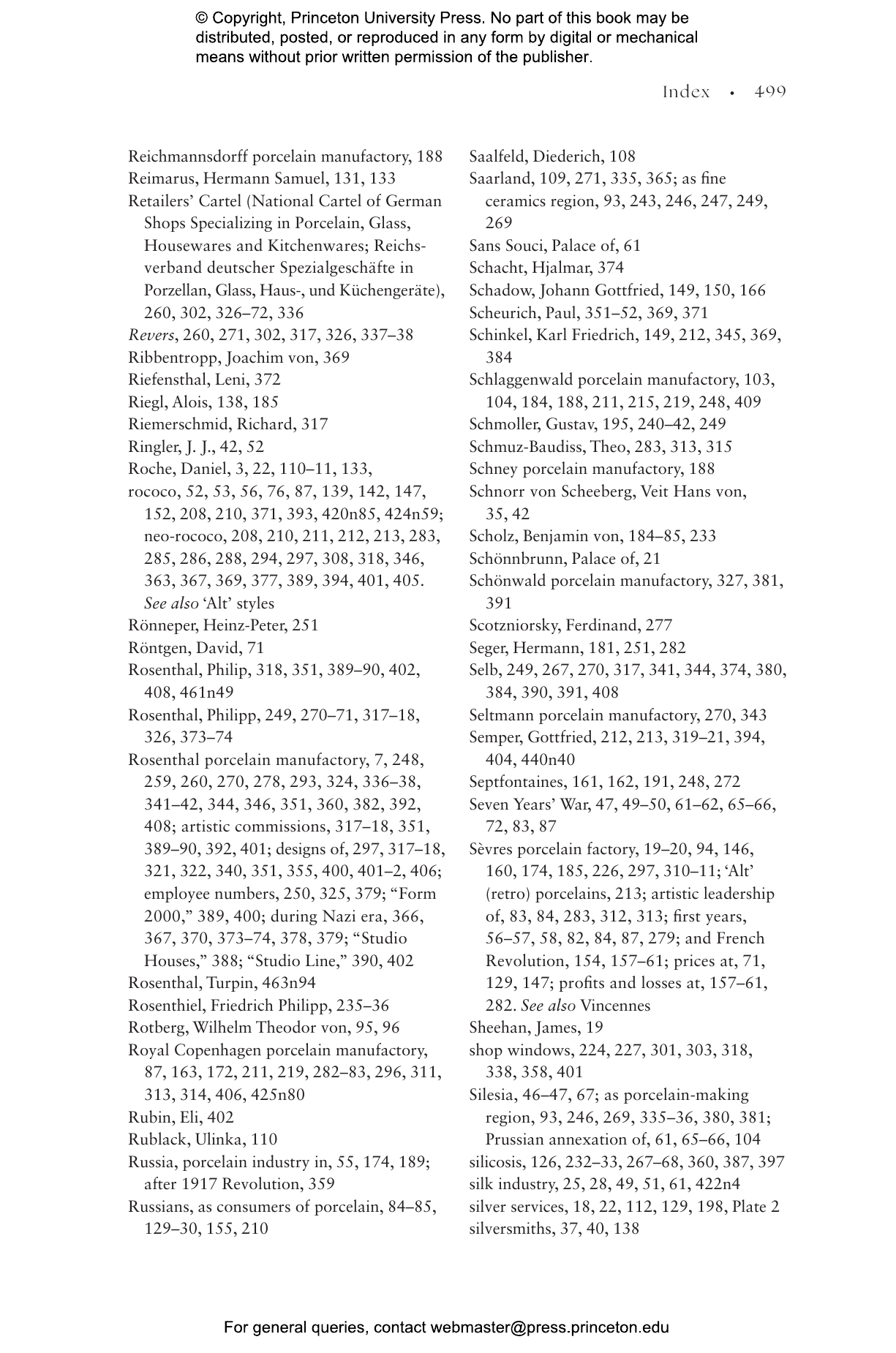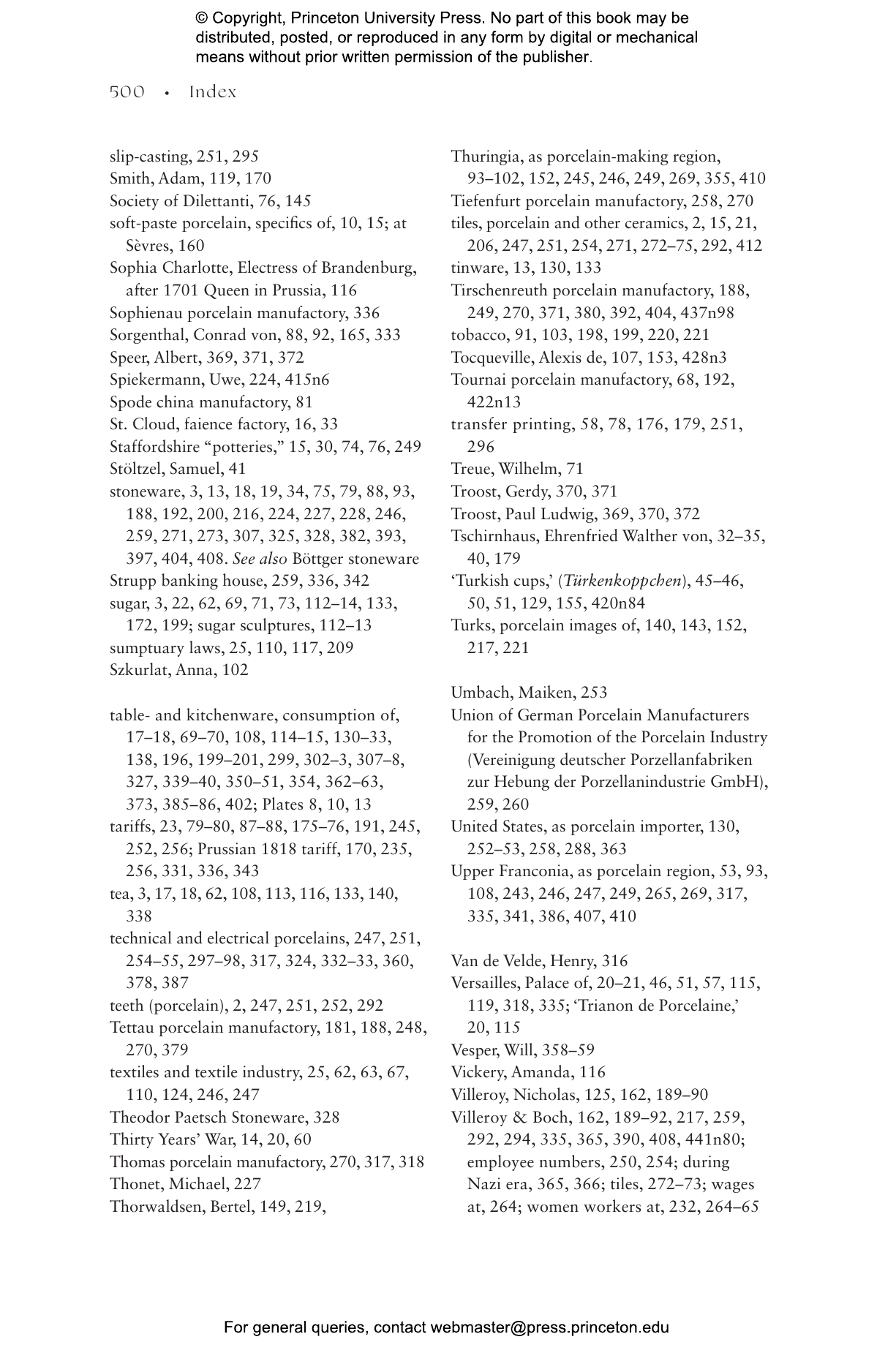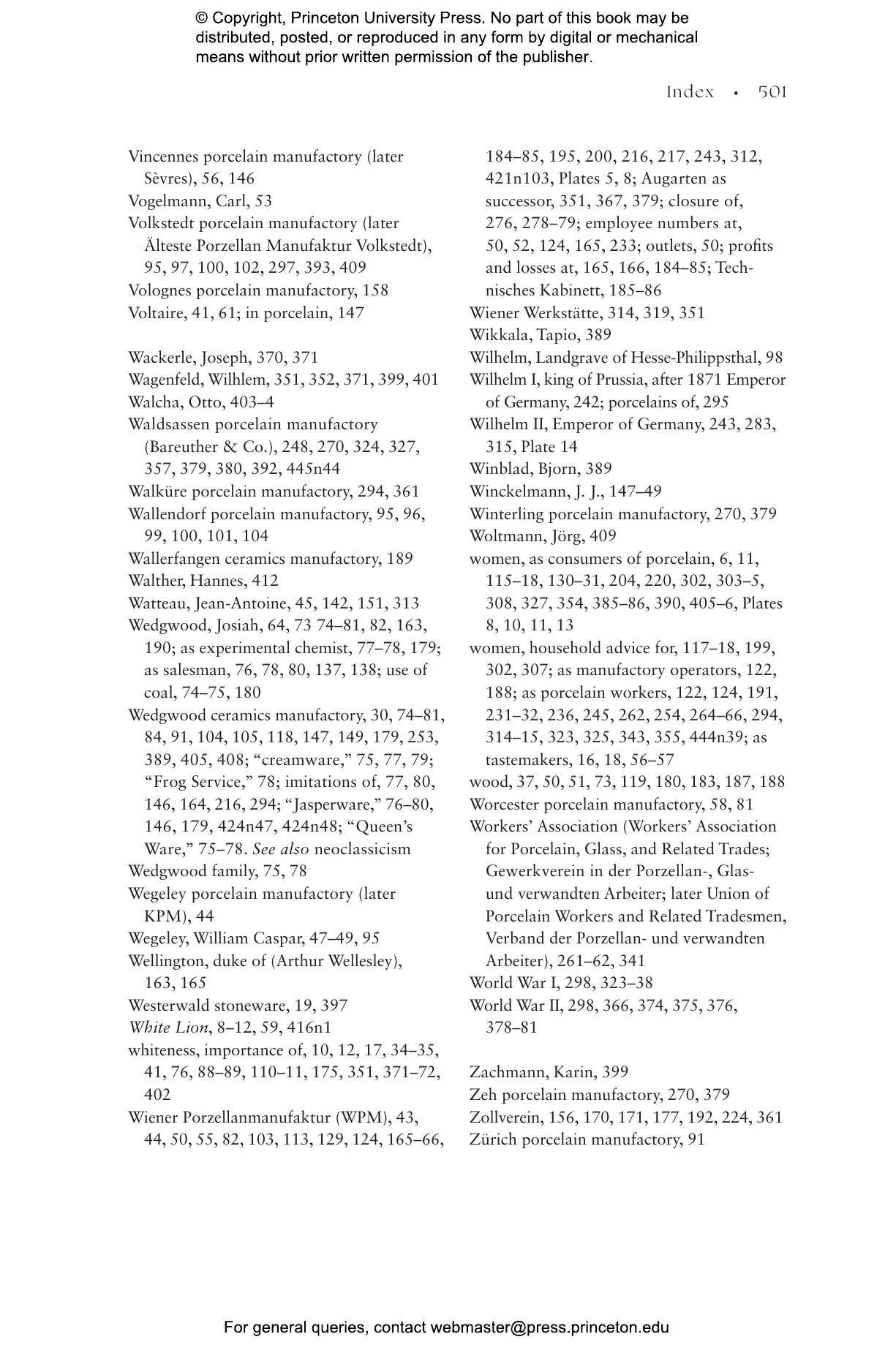Porcelain was invented in medieval China—but its secret recipe was first reproduced in Europe by an alchemist in the employ of the Saxon king Augustus the Strong. Saxony’s revered Meissen factory could not keep porcelain’s ingredients secret for long, however, and scores of Holy Roman princes quickly founded their own mercantile manufactories, soon to be rivaled by private entrepreneurs, eager to make not art but profits. As porcelain’s uses multiplied and its price plummeted, it lost much of its identity as aristocratic ornament, instead taking on a vast number of banal, yet even more culturally significant, roles. By the nineteenth and twentieth centuries, it became essential to bourgeois dining, and also acquired new functions in insulator tubes, shell casings, and teeth.
Weaving together the experiences of entrepreneurs and artisans, state bureaucrats and female consumers, chemists and peddlers, Porcelain traces the remarkable story of “white gold” from its origins as a princely luxury item to its fate in Germany’s cataclysmic twentieth century. For three hundred years, porcelain firms have come and gone, but the industry itself, at least until very recently, has endured. After Augustus, porcelain became a quintessentially German commodity, integral to provincial pride, artisanal industrial production, and a familial sense of home.
Telling the story of porcelain’s transformation from coveted luxury to household necessity and flea market staple, Porcelain offers a fascinating alternative history of art, business, taste, and consumption in Central Europe.
Awards and Recognition
- Winner of the Ralph Gomory Prize, Business History Conference
- Finalist for the PROSE Award in European History, Association of American Publishers
"[A] sweeping economic, social and cultural history of central Europe. . . . unorthodox and engaging."—Marc Levinson, Wall Street Journal
"A wide-ranging and thorough study. . . . this is a riveting story, well told . . . by Marchand, who illuminates so much in an original and entertaining way."—Tim Blanning, Literary Review
"As Suzanne Marchand shows in her meticulous new book, porcelain has been integral to German life since its reinvention in Saxony in 1708."—The Economist
"As an economic-business history, Marchand's work is a landmark achievement. . . . Porcelain is a monumental achievement in scope and breadth in illuminating porcelain's European beginnings and its increasingly fragile position in the markets of the present."—Megan Brandow-Faller, Central European History
"Marchand paints a colourful picture of the day-to-day life of porcelain factories."—Caroline McCaffrey-Howarth, Apollo
"To weave together cultural, economic, and social history so masterfully takes great historiographical experience and skill. All those who are interested in nineteenth-century German intellectual history admire Suzanne Marchand’s books on the reception of classical antiquity and orientalism. Now she has surprised us with something completely new"—Jürgen Osterhammel, Frankfurter Allgemeine Zeitung
"Marchand, a specialist in German history, writes with clarity."—Norma Clarke, Times Literary Supplement
"The remarkable achievement of Suzanne Marchand’s new book, Porcelain, which focuses especially on Germany, is that she moves beyond the celebrated age of discovery in the eighteenth century...to explore modern manufacture and diffusion across a broader consumer society in the nineteenth and twentieth centuries .... While Meissen lies at the center of Marchand’s book, one of its great strengths is the broader survey of German porcelain manufacturing."—Larry Wolff, Journal of Modern History
"N/A"—Monika Poettinger, Austrian History Yearbook
"This is the book on porcelain we have been waiting for. It is a nuanced, scholarly, and passionate account of how porcelain was made, thought of, and consumed in Europe. It is a remarkable achievement."—Edmund de Waal, author of The Hare with Amber Eyes
"In this fine book, Suzanne Marchand provides a colorful picture of porcelain in the modern period. Enlivened by fascinating characters, beautiful passages, and riveting examples, Porcelain will appeal to all lovers of china as well as those who are interested in design, consumption, and luxury."—Frank Trentmann, author of Empire of Things
"There is magic in the way Suzanne Marchand finds a whole world revealed in a teacup. Through many styles and eras, from baroque rococo to fascist classicism and beyond, porcelain has survived, and this endurance illuminates so many things. Deeply researched and written with verve and grace, Porcelain provides a business, consumer, political, and cultural history all wrapped into one. A pleasure to read."—Celia Applegate, Vanderbilt University
"This book uncovers porcelain’s multifaceted and exciting history."—Petra Werner, Porzellanikon, State Museum of Porcelain
"Suzanne Marchand’s stunning new book deftly combines the social and cultural history of ‘white gold’ with a robust, yet stylish, business history. Marchand embeds a rigorously argued interpretation of modern industrial developments and marketing in her vividly told story of a delicate objet d’art."—Mary Lindemann, author of The Merchant Republics
"Examining the history of the porcelain industry in Germany and central Europe, Porcelain captures developments in the region’s economy, politics, and culture. This lively book will appeal to general readers."—Pamela Swett, McMaster University
